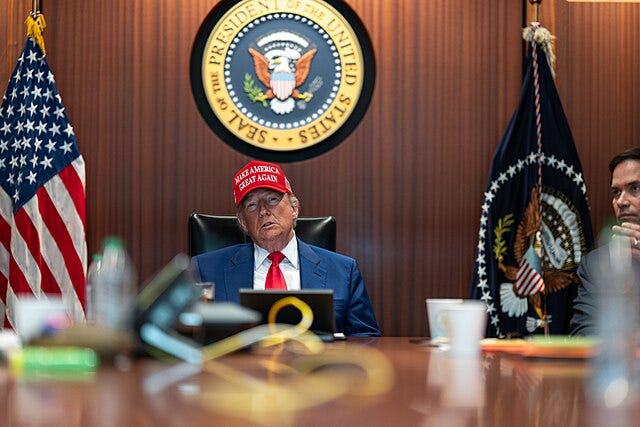
The Long-Term Negative Consequences of Unilateralism
https://michaelmcfaul.substack.com/p/the-long-term-negative-consequences
Posted by HooverInstitution


The Long-Term Negative Consequences of Unilateralism
https://michaelmcfaul.substack.com/p/the-long-term-negative-consequences
Posted by HooverInstitution
3 comments
I feel like this is more about internal US politics than about geopolitics. As the author himself mentions, Iraq was not endorsed by any international body, solely by Congress. Yet he defines it as a multilateral action. But on geopolitical ground, it was unilateral and did not secure the approbation of any international body.
Regarding the geopolitics part, I really don’t share his assessment that it is particularly harmful to the US interests and also that multilateralism was a system that worked. For the former, the US gains flexibility and the ability to better posture its intentions and act on them. Sure, it is disliked by many in the international communities, but so were some of what he calls multilateral actions like the invasion of Iraq or even Libya. And yes, to go to the second point, it does go against the legalistic multilateral world order based around collective security, but the recent years have shown that this system was not working properly. Obama failed to act on the invasion of Crimea and Assad crossing the red line of gassing his own people. It failed to stop North Korea from becoming a nuclear power. Biden gave very conditional support to both Ukraine and Israel, support that was not enough. He put more pressure on them than on the aggressors they were a victim of. If the US is not willing to fully commit to this system, it is better than it is abandoned that way actors gain more agency to decide their own fate that do not depend on the mood of the American public opinion.
Today Trump stated he will enact a 25% tariff on South Korea, despite the fact that South Korea and the United States have an existing free trade treaty, one ratified by the United States Congress.
Eventually what is going to come across is that acting like Drunk Godzilla has consequences. People might give Drunk Godzilla what he wants in the short term, but what they really want is to create a space where they can get away.
In an essay for his Substack, [Michael McFaul](https://www.hoover.org/profiles/michael-mcfaul/) assesses the possible longer-term impacts of President Trump’s recent decision to bomb Iran’s fortified nuclear infrastructure. McFaul emphasizes that on a military level, the attack was well executed and sent “a powerful signal to our adversaries of our extraordinary military capabilities,” providing “a good outcome for American national security interests.” Still, McFaul notes that the success of the strike’s political objectives—namely, the end of the Iranian nuclear program—is “harder to judge today.” McFaul’s larger concern is how the US acted unilaterally, “without the United States being immediately threatened.” He argues that Trump and his national security team “could have persuaded more Americans and members of Congress about the necessity of using force” by sharing additional declassified intelligence showing Iran’s closeness to gaining nuclear weapons.
Comments are closed.